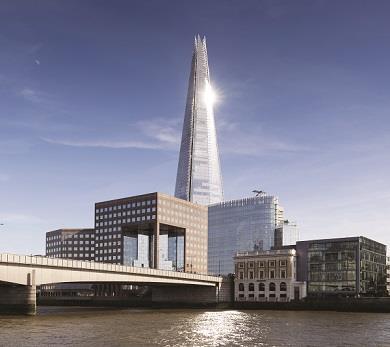Digital connectivity plays a critical role in powering the UK’s small and medium-sized enterprises. However, in a survey on workplace productivity last year, 24% of UK employee respondents noted that slow technology was preventing them from doing their job well.

Despite London’s reputation as one of the world’s tech hubs, many of the capital’s businesses still don’t have access to the high-speed, robust connectivity that they need to succeed. There are a whole host of reasons why London’s businesses face a variance in the standard of connectivity available.
The first is the diversity of London’s business community. Larger businesses typically have the resources to install their own technological infrastructure and set up a dedicated team to manage, maintain and troubleshoot any issues.
Meanwhile, the capital’s start-ups and scale-ups are more likely to start off working from home or lack the office resources for the same quality of connectivity.
The second reason is the lack of transparency from landlords. Office space providers typically do not detail the quality of connectivity they offer – making it more challenging for businesses to identify and select an environment that meets all their requirements.
It should be a landlord’s responsibility to help businesses navigate the commercial property market and understand the standard of connectivity available.
Finally, businesses are not actively demanding the high-quality technology they need. I would advise any enterprise looking for space to request assurances about the digital infrastructure, the speed of broadband available, protocols for service disruptions and the cyber-security measures in place.
Crowded market
London’s commercial real estate market is increasingly crowded and with new spaces launching every week, there is more choice for businesses than ever before. A breadth of options – including traditional offices, flexible space and co-working areas – is undoubtedly a positive but it can make selecting the right space a challenge.

The good news both for businesses and landlords is that there is now an independent rating system.
International connectivity accreditor WiredScore reviews a building’s technological infrastructure with potential tenants in mind – rating and certifying buildings with the best-in-class setup that businesses need.
To date, WiredScore has reviewed and certified some of the UK’s most prominent buildings, including The Shard and the BBC’s Broadcasting House.
The certification takes into account how quickly customers can get connected, the capacity for high-speed internet connectivity, resilience and security and, crucially, how properties are future-proofed for innovations to come.
At Workspace, we’ve made the commitment to achieve some of the highest ratings across 50 of our buildings so far, reassuring our customers that we can meet their tech challenges and requirements.
At a time of comparative instability, it is imperative for landlords to commit to supporting businesses wherever and whenever possible. High-speed wireless, resilient technology infrastructure and secure connectivity will be crucial for tenants and landlords alike to future-proof against the changing business landscape and to facilitate efficient and innovative working.






























No comments yet